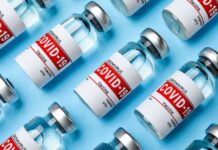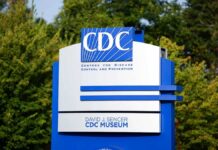As pathogenic prions accumulate, people may start to develop prion diseases such as Creutzfeldt-Jakob disease and mad cow disease.
The COVID-19 virus and its vaccine sequences have a prion region on their surface spike proteins. Earlier in the pandemic and vaccine rollout, some researchers were concerned that these prion regions may promote incurable prion diseases, such as Creutzfeldt-Jakob disease (CJD).
In December 2023, researchers from Oxford showed that 8 percent of the time, the body does not make spike protein from Pfizer mRNA vaccines but may form aberrant proteins instead. This has led researchers to investigate the potential risks of such unintentional formations.
Subsequently, on Jan. 12, retired French biomathematician Jean-Claude Perez published a preprint study discussing whether such mistakes could lead to the formation of prion-like proteins. He concluded that prion-like protein formation is possible.
A previous peer-reviewed paper by Mr. Perez and his co-authors in January 2023 recorded 26 cases of CJD. Those afflicted reported that their first symptoms manifested within one to 31 days of their last COVID-19 vaccination or infection.
All patients experienced a rapid worsening of their condition over the ensuing months and died.
What Are Prions?
Prions are proteins that exist naturally in the brain. They perform crucial tasks and are necessary for human health.
However, on rare occasions, a healthy prion may misfold into a pathogenic prion. This misfold is irreversible, and from then on, the pathogenic prion converts all healthy prions it encounters into pathogenic prions.
As pathogenic prions accumulate, people may start to develop prion diseases such as CJD and mad cow disease.
Other researchers have also proposed that Parkinson’s disease and Alzheimer’s disease, both of which exhibit an accumulation of misfolded proteins, may also be prion diseases.
Prions are defined by their amino acid sequences. Prion-like sequences are rich in glutamine and asparagine amino acids, and human or foreign proteins that contain such regions are at risk of initiating prion diseases.
“Amino acid sequence can tell us if a protein can potentially act as a prion and show prion-like functions,” said Vladimir Uversky, PhD, a professor at the University of South Florida specializing in molecular medicine. “Not all proteins with prion-like sequences will undoubtedly act as prions. Even prion protein itself will cause prion disease in very few cases.















































